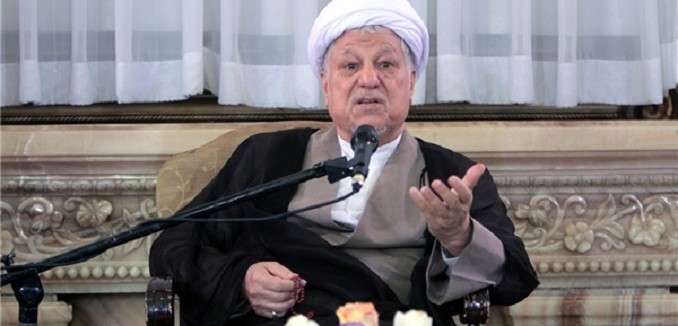Ali Akbar Hashemi Rafsanjani, a cleric who was instrumental in founding the Islamic Republic, served as president of Iran from 1989 to 1997, and was viewed as a mentor to current President Hassan Rouhani, died on Sunday at the age of 82.
Rafsanjani helped bring about the 1979 Islamic Revolution, in which his teacher Ayatollah Ruhollah Khomeini seized power. He served as speaker to Iran’s parliament from 1980 until 1989, when he was elected president. During his time as president, Iran began using terrorism as a tool of foreign policy more frequently.
A Central Intelligence Agency assessment from 1990 found that Rafsanjani had targeted “enemies of the regime” during the previous year, and predicted that “Rafsanjani and other Iranian leaders will continue selectively using terrorism as a foreign policy tool to intimidate regime opponents, punish enemies of Islam, and influence Western political decisions.”
In 1992, four Iranian dissidents were killed in a Berlin restaurant. A German court found in 1997 that both Rafsanjani and Supreme Leader Ayatollah Ali Kamenei “not only allow terrorist attacks abroad…they themselves set in action such attacks.” Iranian foreign policy, the court concluded, involved identifying opponents abroad and having them “liquidated.”
That same year, the Israeli embassy in Argentina was bombed, as was the AMIA Jewish community center in Buenos Aires two years later, with both attacks widely believed to have been done by the Iran-sponsored terror group Hezbollah. Argentine investigators concluded that the AMIA bombing had been approved at a meeting attended by Khamenei and Rafsanjani.
Also during Rafsanjani’s tenure, the Khobar Towers complex in Saudi Arabia, which housed American troops, was bombed by Saudi and Lebanese members of Hezbollah in a plot that was planned by Iranian agents. 19 U.S. Air Force personnel were killed in the blast, as were a number of Saudis and nationals of other countries. The bombers who were captured said that they were trained by Iran’s Islamic Revolutionary Guard Corps (IRGC) and had received $250,000 and logistical support from an IRGC general. Then-FBI Director Louis Freeh testified before Congress that “the attack was planned, funded and sponsored by senior leadership in the government of the Republic of Iran, that the IRGC principally had the responsibility of putting that plan into operation.”
Rafsanjani was often described in international media as a “moderate,” and indeed did work with leftists and liberals to overthrow the Shah. But he later said that he had no intention of allowing them to have a part in ruling the country, Iranian-American journalist Sohrab Amari wrote Monday in The Wall Street Journal.
“Until we had our people in place,” Rafsanjani said in 1981, “we were ready to tolerate [other] gentlemen on the stage.” Once the government was in place to consolidate power, Ahmari wrote, “a decade of purges, prison rapes and executions followed” to ensure that Khomeini’s path would be followed.
Rafsanjani also frequently professed hatred of Israel and made explicit calls for its destruction. Rafsanjani delivered the country’s official Qods Day sermon for nearly 25 years. Qods Day is a holiday that was established by Khomeini to express hatred of Israel, and is commemorated by holding parades with crowds chanting “Death to Israel” and “Death to America.” “The wave of hatred against the Zionists should include all freedom-seeking nations as well as Muslim countries,” Rafsanjani said in 2014.
He himself frequently called for Israel’s destruction: In 2000, he threatened that “it is not unreasonable to consider [the] possibility” that the Islamic world could “wipe [Israel] off the face of the earth” with nuclear weapons. As negotiations over Iran’s nuclear program were concluding in July 2015, Rafsanjani again spoke of the destruction of Israel, calling the country a “forged and temporary Israeli entity, which is an alien existence forged into the body of a nation and a region,” and expressed his hope that it would one day “be wiped off the map.”
[Photo: Fars News ]




